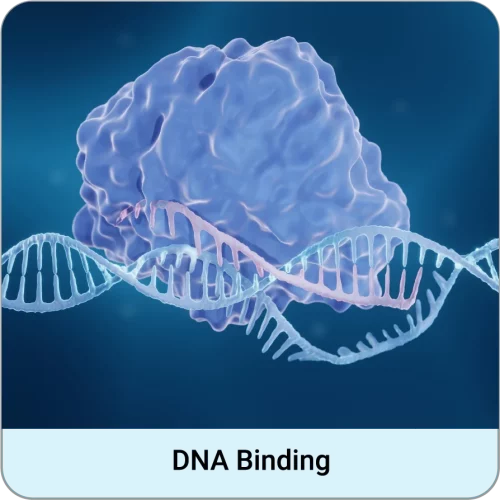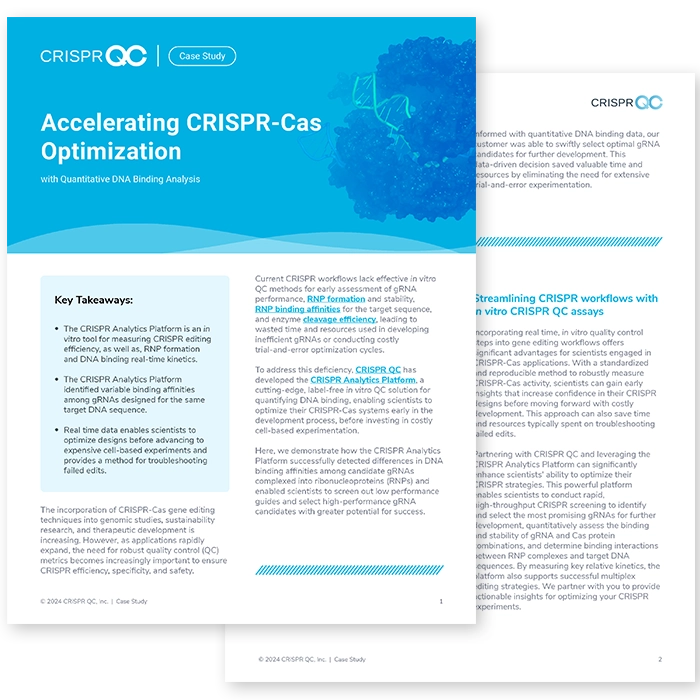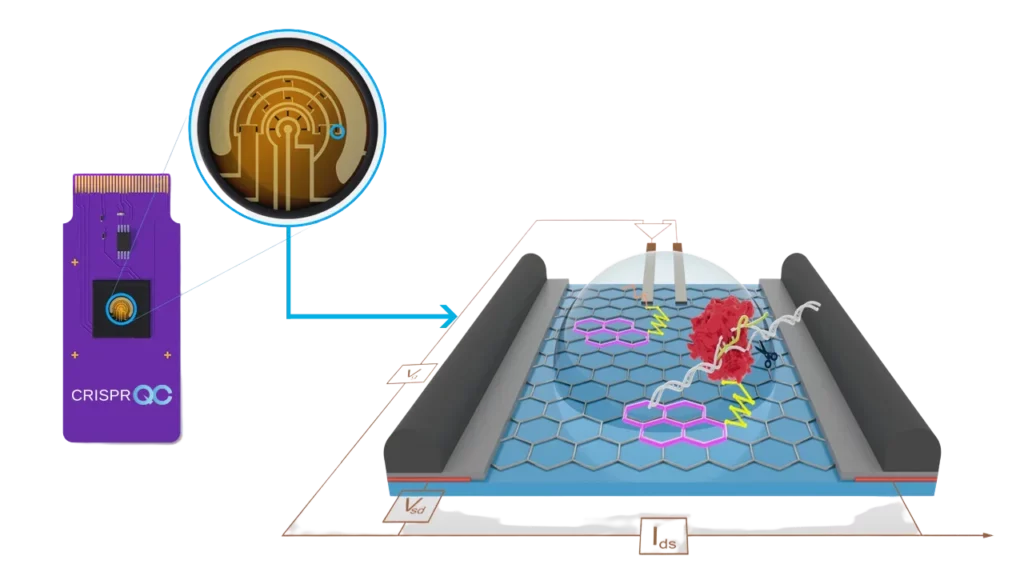Optimize CRISPR efficiency with real-time DNA binding insights.
When using CRISPR for gene editing, how can you know that your ribonucleoprotein (RNP) design will bind to your target gene accurately and consistently? Small mismatches between gRNA and gene sequence or differences in Cas protein binding properties can make all the difference in your CRISPR editing experiments. Even among gRNAs designed for the same gene, binding efficiencies can vary. Using extensive cell-based assays to measure the results of your edits however, limits your ability to make rapid optimizations and meet tight biomanufacturing timelines.

Do you have additional workflow challenges you’d like to overcome? Learn more below.
Capture CRISPR-Cas DNA binding activity in real-time with our highly-sensitive CRISPR Analytics Platform™. This in vitro system directly measures the binding of immobilized RNP complexes to target DNA amplicons, providing actionable data that enables researchers to optimize CRISPR designs before investing time and resources into costly in vivo experiments and biomanufacturing events.
Learn how real-time DNA binding insights enabled researchers to save time on their CRISPR gene editing experiments. Our case study reveals how the CRISPR Analytics Platform™ helped one customer identify a subset of optimal gRNAs with improved DNA binding characteristics, saving them weeks of repeated experiments pursuing suboptimal alternatives.
Improve your CRISPR efficiency by leveraging analytics to:


Our cutting-edge CRISPR-Chip™ Biosensor combines the sensitivity of a graphene-based field-effect transistor with the specificity of CRISPR by immobilizing Cas proteins onto the graphene layer.
The sensitivity of graphene’s conductivity to biomolecular recognition on its surface endows the platform with the unique capacity to quantitatively assess binding interactions or cleavage reactions in real time. Together, these elements deliver actionable insights, empowering your CRISPR-Cas biochemistry investigations with unparalleled accuracy and efficiency.
© 2025 CRISPR QC™, Inc.